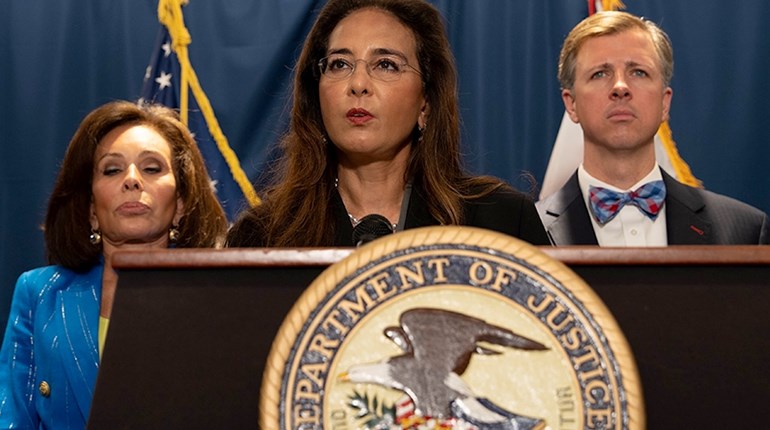
A Minnesota measure that will inflict unjust gun-control restrictions on the law-abiding citizens of the North Star State was recently signed into law by Gov. Tim Walz (D)
Senate File 2909, called the “Public Safety Omnibus Bill,” infringes on the constitutionally protected rights of gun owners, and not just their Second Amendment rights. The bill, which pro-Second Amendment politicians fought hard against in both the Minnesota House and Senate, includes a so-called “red-flag” law and institutes grossly misnamed “universal” background checks, among other provisions.
“There is a reason the Senate has stood firm for the Second Amendment for all of these years,” state Sen. Andrew Matthews (R) said of the gun-control provisions being tossed into the public safety bill. “And, the new majority that has come in, without even the decency to give this a standalone vote, has tried to tuck it into a 500-page omnibus bill at the 11th hour on short notice.”
Walz had previously expressed support for both schemes prior to signing.
“As a veteran, gun-owner, hunter, and dad, I know that basic gun safety isn’t a threat to the Second Amendment. It’s about our first responsibility to our kids: Keeping them safe. When the bill reaches my desk, I’m going to sign a red flag law and background checks into law,” tweeted Walz.
It’s hard to believe that Walz really thinks neither of those provisions are “a threat to the Second Amendment,” since both so clearly are. Take so-called “universal” background checks as an example. While proponents of such laws make it sound like every gun will be transferred with a federal NICS background check, that simply isn’t true. Background checks don’t stop criminals from acquiring firearms through illegal methods.
In fact, Department of Justice reports have shown that 77% of criminals in state prison for firearm crimes said they got their firearms through theft, on the black market, or from family members and friends. Less than 1% percent purchased their guns from licensed dealers or at gun shows.
As for so-called “mass shootings”—more properly called “mass murders”—according to Dr. John Lott, president of the Crime Prevention Research Center, “universal” background checks are simply not the answer to that problem. “There’s not one mass public shooting this century that would have been affected if such a law had been in effect nationally and been perfectly enforced,” Lott said in a television interview last year.
Rather than infringing squarely on the Second Amendment like “universal” background checks would, “red-flag” laws, sometimes called “Extreme Risk Protection Orders,” have the dubious distinction of walking all over about half of the U.S. Bill of Rights. Supporters of such laws either haven’t delved into the fine print or have decided to vote away our freedom.
“Red-flag” laws typically permit the government to seize a person’s firearms and, thereby, at least temporarily take away their Second Amendment rights. Due process perhaps comes later. The first time a person finds out that they are the subject of such an order might be when law enforcement shows up at their front door to confiscate their firearms. And even if the person later has an opportunity (this is often a very expensive option) to tell his or her side of the story at a hearing, the damage to the person’s rights and reputation is done the moment the guns are removed.
As the NRA Institute for Legislative Action has noted in the past, aside from due process concerns, the U.S. Supreme Court decision in last year’s Bruen case “suggests that ‘red flag’ gun confiscation orders are unconstitutional solely on Second Amendment grounds.”
Justice Clarence Thomas’ opinion declared that, in order for a firearm regulation to pass constitutional muster, it must fit within the text, history and tradition of the Second Amendment right. Specifically, the opinion noted that “[w]hen the Second Amendment’s plain text covers an individual’s conduct, the Constitution presumptively protects that conduct. The government must then justify its regulation by demonstrating that it is consistent with the Nation’s historical tradition of firearm regulation. Only then may a court conclude that the individual’s conduct falls outside the Second Amendment’s ‘unqualified’ command.”
That obviously poses a serious problem for the constitutionality of “red-flag” laws, which are thought of as “new” solutions to the gun “problem.”
Interestingly, California already has both a “red-flag” law and so-called “universal” background checks, yet it has experienced a number of mass-murder incidents this year.

































